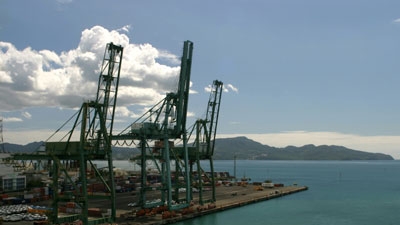For the average traveller, Customs is simply another form to be filled in when arriving in another country. But for a country like Jamaica, where exports of goods and services represent almost a third of GDP, Customs is much more than another part of travel bureaucracy.
Jamaica's Commissioner of Customs Major Richard Reese highlights the fact that his department must maintain a balance between revenue generation, trade facilitation and border protection.
Facilitating trade
In testament to the island's maritime past, Kingston boasts the seventh largest natural harbour in the world, but inefficient Customs, a lack of coordination and bottlenecks in port processes cost the Caribbean dearly.
"If [the cargo] gets delayed here, then there is a cascading effect on other ports. These ships hate to wait at an inefficient port where they do not know when they are going to sail out next. That cargo has got to go to somebody else," explains Master Mariner Ashok Pandey.
A recent World Bank study revealed that handling charges in the Caribbean can be two to three times higher than in similar ports in other regions. As a result, it can be significantly cheaper to ship a container to Hong Kong than a neighbouring country just 100 miles away.
Improving logistics in the country is therefore a priority for the Government of Jamaica, which aims to put Jamaica firmly back on the trade map with a new logistics hub in Kingston. However, no expansion project will improve performance without also tackling current inefficiencies.
At the same time, trading across the border as measured by Doing Business, which has become faster and easier over the past two years. Notably, Jamaica recently reduced the time to import by allowing Customs entries to be lodged at night.
Commissioner Reese boldly posits a Jamaica Customs Agency (JCA) objective is to "make Jamaica, as a destination, competitive"; whether it is by air, sea, passenger, or cargo.
In answer, the Government of Jamaica and the World Bank have approved a new project to strategically transform the public sector, improving efficiency, modernising processes and ultimately paving the way for private sector growth.
For the World Bank, JCA is one of the major agents in supporting the Government of Jamaica's economic growth programme. For us, the partnership with JCA is a critical and crucial one, considering its role as a trade facilitator, policy advisor and service provider.

